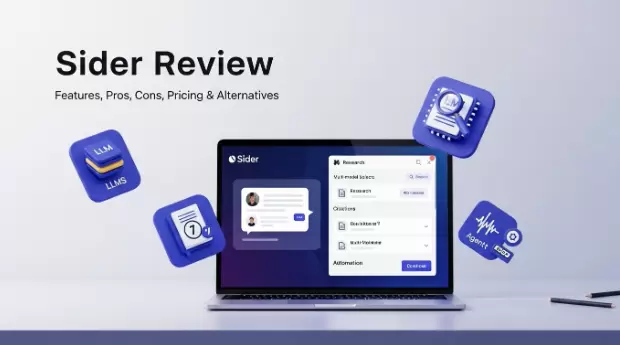When we heard the term artificial intelligence (AI), we automatically think about science-fiction movies featuring killer robots that destroy humankind. The public perception is understandable, but it not quite accurate.
AI has already touched many aspects of our daily lives. According to a recent AI adoption survey, almost 63% of respondents are already using AI tools without even realizing (Hubspot).
What does it mean for SEO?
Experts predicted the role of AI in SEO to be noteworthy.
Automatic checkouts, search engine efficiency, email automation, online product recommendations, and effective learning management systems - AI is making everything smarter. Today, it is widely accepted by marketers as part of SEO success.
How to leverage the power of AI to boost your SEO practices
Here’s how AI for SEO can optimize your site, help you with search engine rankings, improve the content, and develop better business strategies.
1. Build an AI-enabled website
Integrating AI and SEO helps business owners improve their website’s ranking. Ranking in the top results means more traffic, expanded opportunities of business, and it also portrays you as an industry authority.
AI is a game-changer in e-commerce as it helps you understand user’s search intent. Google gives top positions to those that deliver content as relevant as possible. That is why SEO has gone beyond keywords. It’s about:
- Concept: The idea behind this query.
- Context: Understanding the intent of the user behind the query.
- User experience: Finding the most relevant answers to the query.
So, keyword stuffing is no more valid. You need to optimize your website to be searched easily by AI-powered search engines.
There are many practical ways to do this, and one of them is improving page experience.
What does AI have to do with this? AI-enabled search engines will make sure that they serve up:
- Sites are easy to navigate.
- Sites with valuable content.
- Pages that load fast.
- Sites that are mobile optimized.
All of this helps you with increasing website reputation.
2. Chatbots for all things social
AI-enabled chatbots have some clear benefits for your business. They ensure your availability 24/7, guide customers and keep them at your site for longer.
They collect important customer information without even asking for it, which is helping businesses getting quality leads. They can save 30% of your total customer support cost (Invesp).
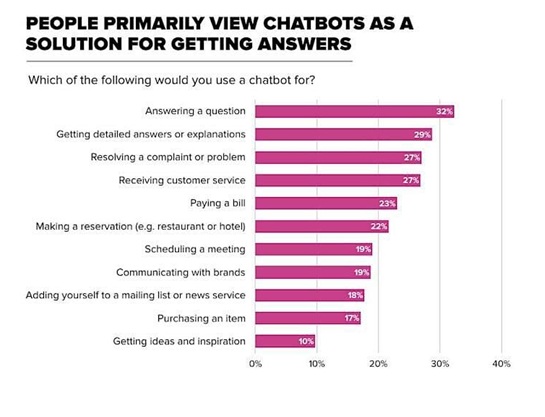
According to a study, 64% of people, high responsiveness is the best feature of chatbots, and 27% of users prefer to take guidance from AI support tools.
AI helps you inject personality in your chatbots and natural human-like interactions improve user engagement and provide a personalized experience- the essence of SEO. Plus, more people will share your content, post positive reviews that will lift your rankings.
Take some inspiration from Nike’s chatbot named Stylebot.
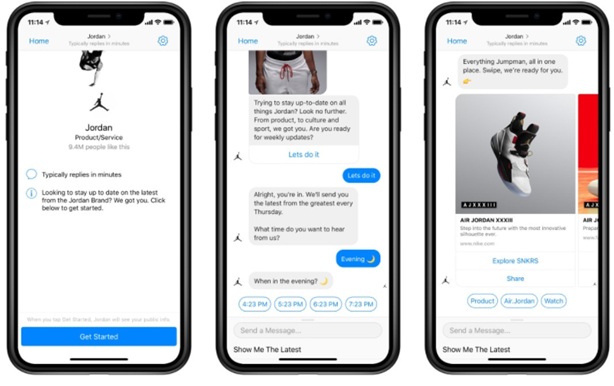
The messenger bot let users create their personalized outfits or pick from the existing ones. Users have so many options to choose from, and if you like the result, you can immediately buy it from the website.
3. Voice search is here to stay
Today, humans prefer natural interactions more than ever. With the revolution in natural language processing (NLP) and machine learning technologies, it is possible.
Alexa, Siri, Google Home, and Cortana have become our virtual assistants and help us with the easiest of tasks. This is where things change for SEO.
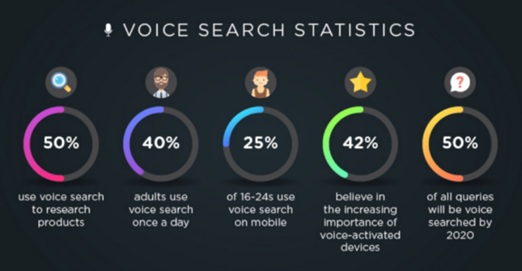
If you are thinking SEO for web browsing on PCs, most users will type ‘best continental restaurant in NYC’. But when a user do a voice search, they’ll more likely to say a complete structure ‘hey, what’s the best restaurant to get continental food in NYC?’
As voice searches are getting more conversational, the AI algorithm helps with voice search optimization. This means recognizing keywords and phrases to predict queries in a better way.
4. Increasing importance of SEO for visual content
The newfound combination of AI and SEO has completely changed the criteria for visual content creators. Now, search engines rank images that make sense.
AI-enabled search engines are getting better at differentiating audio, content, video, and images. This completely changes how visual content creators work. With AI, users are able to watch only that portion of the content related to their question.
They have to be more aware of the SEO best practices for visual content, such as:
- Avoid using stock images.
- Optimize the name of the image file.
- Add alt-text under each image.
- Optimize the title of the image.
- Add accompanying text with infographics.
- Submit sitemap for images and videos.
- Add high-quality, unique visuals.
Here’s an example of alt-text to describe the image.
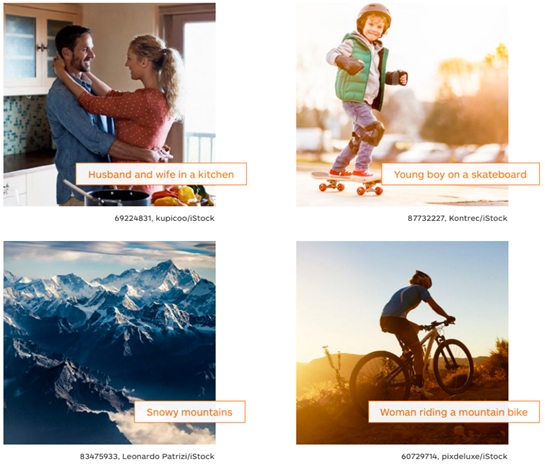
5. AI has obsoleted old SEO tactics
Welcoming AI for SEO means we have to say goodbye to black hat practices forever. In past, black hat SEO practices such as keyword stuffing and spamming were used to exploit a weakness in the search algorithms. As a result, irrelevant results appear in the search result page.
The AI advancements such as RankBrain, these issues are about to resolve completely. AI for SEO is all about focusing on the quality and relevance of the content.
6. Local search is more powerful
You cannot ignore the fact that people will buy from you if you appear in local searches. In order to appear in Google local searches, you have to tailor your SEO strategy as per the changes in Google’s AI.
The local SEO is also impacted by AI, knowing the algorithms are the core of advanced search engines. According to Hubspot, 46% of online users look for local information, and 97% of people learn about a local company online.
These compelling stats show the hidden opportunities behind local SEO.
AI is improving local search results with the help of platforms like Yest. This platform uses AI to make sure that modifications in your company’s search listings are reflected across all the search engines and voice assistants.
Do the following things to make local SEO effective:
- Create your own Google my business listing.
- Ensure availability of NAP across all stages.
- Link your site with search engines through Geotags.
- Use schema markups and Google map.
- Optimize site and search for local keywords.
- Update social media accounts and add business details.
7. AI helps you optimize old content
With AI, your SEO strategy should focus on producing focused, relevant, and quality content. The machine learning system RankBrain attempts to comprehend the context of the content. Even the blogs and short articles on your website must provide some kind of value to end-users.
Good digital marketing practice is to use intelligent content tools. These AI-based tools optimize website content that is generally created by taking Dissertation Assistance.
Can I improve my old SEO content with AI? Yes, you can.
It’s no surprise that some pages get no traffic. Tools like Ahrefs and Google analytics let you uncover low-performing pages that you can improvise.
The final verdict
AI is becoming an essential element of search engine optimization. It discovers SEO opportunities by understanding user intent and relevant keywords. The speed and advanced algorithms provided businesses with an edge by expediting the processes and their accuracy.
Author bio
Samantha Kaylee is presently working as an Assistant Editor at Crowd Writer, a reliable place for students to buy assignment and essays at affordable prices. She loves to inform people about the updated marketing industry trends and share tips based on her personal experience.


 Table of Content
Table of Content




